|
|
|
Sort Order |
|
|
|
Items / Page
|
|
|
|
|
|
|
| Srl | Item |
| 1 |
ID:
137493
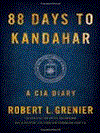

|
|
|
|
|
| Publication |
New York, Simon and Schuster, 2015.
|
| Description |
xix, 443p.Hbk.
|
| Standard Number |
9781476712079
|
|
|
|
|
|
|
|
|
|
|
|
Copies: C:1/I:0,R:0,Q:0
Circulation
| Accession# | Call# | Current Location | Status | Policy | Location |
| 058169 | 958.104/GRE 058169 | Main | On Shelf | General | |
|
|
|
|
| 2 |
ID:
132358


|
|
|
|
|
| Publication |
2014.
|
| Summary/Abstract |
How and to what extent is the preventive use of force becoming the future of foreign policy for states around the world? We explore the spread of preventive logic to increasing numbers of states and examine the degree to which an international norm toward preventive self-defense is cascading in the international system. Through content and comparative case study analysis, we investigate leaders' rhetoric and security policies concerning what we theorize is the key indicator of a country's emulation of the United States: assertion of the right to the unilateral, preventive use of force outside of its borders. Our evidence indicates that there has been a shift away from the established international norm-which considers the use of preventive force illegal and illegitimate-toward growing acceptance of unilateral preventive strategies, a shift largely propelled by the precedents set by the United States in the war in Iraq and its use of unmanned aerial vehicles (UAVs or drones) in the global war on terror. Our findings also reveal that some states are applying the strategy of preventive self-defense beyond the use of UAVs for targeted killings to the extreme contingency plan for nuclear war. We conclude by discussing possibilities for further research and considering the implications of this phenomenon.
|
|
|
|
|
|
|
|
|
|
|
|
|
|
|
|
| 3 |
ID:
135596
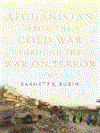

|
|
|
|
|
| Publication |
Oxford, Oxford University Press, 2013.
|
| Description |
xxiii, 504p.Hbk
|
| Standard Number |
9780199791125
|
|
|
|
|
|
|
|
|
|
|
|
Copies: C:1/I:0,R:0,Q:0
Circulation
| Accession# | Call# | Current Location | Status | Policy | Location |
| 058042 | 958.104/RUB 058042 | Main | On Shelf | General | |
|
|
|
|
| 4 |
ID:
133161
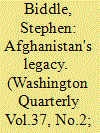

|
|
|
|
|
| Publication |
2014.
|
| Summary/Abstract |
The war in Afghanistan is not over. Nor is it ending any time soon. The U.S. role may end in 2016, in whole or in part, but the war will continue-and its ultimate outcome is very much in doubt. The conflict is now stalemated militarily, and will likely stay that way as long as outsiders pay the large bills needed to keep the Afghan National Security Forces (ANSF) in the field and fighting. The war will thus grind onward until this funding dries up or the two sides negotiate a compromise settlement, neither of which is imminent. Depending on how any talks unfold, historians in 2050 could thus look back on this war as a costly but tolerable outcome for the West, as a wasteful disaster, or as something in between; for now, all we know for sure is that it continues.
|
|
|
|
|
|
|
|
|
|
|
|
|
|
|
|
| 5 |
ID:
133289
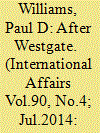

|
|
|
|
|
| Publication |
2014.
|
| Summary/Abstract |
The attack on the Westgate Mall in Nairobi, Kenya, in September 2013 intensified international scrutiny of the war against Harakat Al-Shabaab Mujahideen (Movement of the Warrior Youth). This article analyses the current state of affairs with reference to the three principal sets of actors in this war: Al-Shabaab, the African Union Mission in Somalia (AMISOM) and its international partners, and the various actors currently involved in building the Somali Federal Government's security forces. It argues that although the newly reconfigured Al-Shabaab poses a major tactical threat in Somalia and across the wider Horn of Africa, the movement is becoming a less important actor in Somalia's national politics. As Al-Shabaab loses territory and its popularity among Somalis continues to dwindle, other clan- and region-based actors will become more salient as national debates over federalism, the decentralization of governance mechanisms beyond Mogadishu and the place of clannism will occupy centre stage. As a consequence, AMISOM's principal roles should gradually shift from degrading Al-Shabaab towards a broader stabilization agenda: encouraging a national consensus over how to build effective governance structures; developing an effective set of Somali National Security Forces; and ensuring that the Federal Government delivers services and effective governance to its citizens, especially beyond Mogadishu in the settlements recently captured from Al-Shabaab. As it stands, however, AMISOM is not prepared to carry out these activities. More worryingly, nor is the Somali Federal Government.
|
|
|
|
|
|
|
|
|
|
|
|
|
|
|
|
| 6 |
ID:
088413
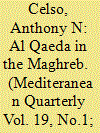

|
|
|
|
|
| Publication |
2008.
|
| Summary/Abstract |
The presence of al Qaeda in the Maghreb (AQIM) may be interpreted as the opening of a new front in the cause of international jihad. However, terrorist activity in North Africa is not new, for the region has been convulsed by past jihadist insurgencies. The essay argues that AQIM is a response to jihadists' post-9/11 organizational and ideological problems. The loss of al Qaeda's Afghan sanctuary had made it dependent on affiliates to recruit terrorists. The failure of the North African Salafists to overthrow any government, moreover, requires the commissioning of a new cause. AQIM is a mutually beneficial arrangement among jihadists to compensate for past failures.
|
|
|
|
|
|
|
|
|
|
|
|
|
|
|
|
| 7 |
ID:
138618
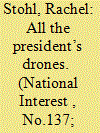

|
|
|
|
|
| Summary/Abstract |
WHEN THE Senate Select Committee on Intelligence released its “torture report” in December 2014, it reignited the battle over the George W. Bush administration’s conduct of the “war on terror.” Unfortunately, the interrogation program was not an anomaly in its lack of transparency. A similar problem exists with the U.S. drone program—which, after more than ten years of use and nearly two years after President Barack Obama’s speech promising greater transparency and accountability, remains shrouded in secrecy and uncertainty.
|
|
|
|
|
|
|
|
|
|
|
|
|
|
|
|
| 8 |
ID:
082132
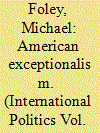

|
|
|
|
|
| Publication |
2007.
|
| Summary/Abstract |
Because American populism has traditionally been associated with indigenous themes and inward perspectives, it has never been thought to be particularly relevant to the United States' outlook upon the international order or its understanding of the generic requirements of foreign policy-making. However, recent developments surrounding the formulation and prosecution of the war on terror have cast doubts on this negative correlation. Using four thematic and analytical categories, the article reveals President Bush's close dependency upon characteristically populist principles in the way that the issue was presented to, and mediated with, the American public. It surveys the way that the Bush team employed populist narratives in advocating the need for alternative channels of international action outside both the customary agencies of collective security and the established conventions of international law. Although the usage of populist techniques was initially effective, the administration subsequently experienced some of the defects that have traditionally afflicted populism as an agency of political transformation
|
|
|
|
|
|
|
|
|
|
|
|
|
|
|
|
| 9 |
ID:
120478
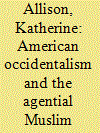

|
|
|
|
|
| Publication |
2013.
|
| Summary/Abstract |
Through the War on Terror the United States developed a seemingly enlightened understanding of Muslim women. In contrast to Orientalised representations of Muslim women's passivity and victimisation within brutal Islamic cultures these emerging representations posit Muslim women in terms of their modernity and liberation. The emergence of this new Muslim woman illuminates an attempt to secure an Occidental self through the negotiation of conflicting impulses towards Islam. Islam is recognised as the repository from which the US enemy other emerges yet the WoT also reflects a particular desire for a cosmopolitan inclusivity. The presence of the Muslim woman acts to assuage these tensions. Her oppression confirms the barbarity of the enemy yet the combination of her intrinsic agency and religiosity posits her as an acceptable Islamic other whose presence confirms the pluralistic tolerance of the US and the universal validity of its project.
|
|
|
|
|
|
|
|
|
|
|
|
|
|
|
|
| 10 |
ID:
109041
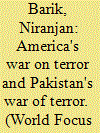

|
|
|
| 11 |
ID:
101283
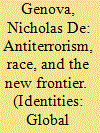

|
|
|
|
|
| Publication |
2010.
|
| Summary/Abstract |
Following Barack Obama's election as United States president, the illusion that the worst excesses of the Bush administration are now simply finished must be tempered by a sober assessment of the deeply consequential institutionalization of antiterrorism as the intransigent idiom of a new species of security state formation. Obama's assumption of responsibility for the conduct of the so-called War on Terror has committed him to the dominant ethos of antiterrorism and a multifaceted program of securitization, "domestically" and internationally. Furthermore, the task of reinvigorating United States nationalism by exalting American exceptionalism is one that deeply conjoins Obama with his predecessor. This is, perhaps, nowhere so evident as in Obama's dissimulations of the racial singularity and salience of his accession to the presidency. Indeed, he compulsively deracialized his election in favor of an American exceptionalist gesture of patriotic postracialism. This essay interrogates the relation between this "postracial" Americanism and a distinctly imperial multiculturalism. Through this "postracial" and assimilationist vision of empire, and by means of the crucial (racially ambiguous) figure of the Muslim, the United States has fashioned itself as the decisive police power of an incipient Global Security State, charged with putting in order the wild new frontiers of an unruly planet.
|
|
|
|
|
|
|
|
|
|
|
|
|
|
|
|
| 12 |
ID:
120328
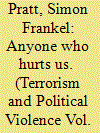

|
|
|
|
|
| Publication |
2013.
|
| Summary/Abstract |
This article examines the evolving logic to the systematic assassinations of Palestinian activists carried out by Israel during the Aqsa Intifada (September 2000-2005). It argues that the logic of Israel's "assassination policy" developed in three stages. During each successive stage, the security executive expanded the scope of who could be legitimately targeted and what goals could be served in doing so. This article further argues that normative and legal considerations played a key role in determining target selection and tactical means. It finds that during the Aqsa Intifada, the Israeli government used assassination not according to any unified purpose but rather as an evolving and often ad hoc combination of political communication, tactical action and, more rarely, strategic manipulation. In short: there was not one single rationale driving the assassinations but several.
|
|
|
|
|
|
|
|
|
|
|
|
|
|
|
|
| 13 |
ID:
105560
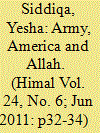

|
|
|
| 14 |
ID:
113902
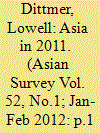

|
|
|
| 15 |
ID:
109548
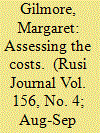

|
|
|
| 16 |
ID:
138341
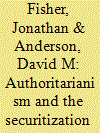

|
|
|
|
|
| Summary/Abstract |
Debate on the ‘securitization’ of aid and international development since 9/11 has been anchored in two key claims: that the phenomenon has been driven and imposed by western governments and that this is wholly unwelcome and deleterious for those in Africa and elsewhere in the developing world. This article challenges both of these assumptions by demonstrating how a range of African regimes have not only benefited from this dispensation but have also actively encouraged and shaped it, even incorporating it into their own militarized state-building projects. Drawing on the cases of Chad, Ethiopia, Uganda and Rwanda—four semi-authoritarian polities which have been sustained by the securitization trend—we argue that these developments have not been an accidental by-product of the global ‘war on terror’. Instead, we contend, they have been the result of a deliberate set of choices and policy decisions by these African governments as part of a broader ‘illiberal state-building’ agenda. In delineating this argument we outline four major strategies employed by these regimes in this regard: ‘playing the proxy’; simultaneous ‘socialization’ of development policy and ‘privatization’ of security affairs; making donors complicit in de facto regional security arrangements; and constructing regime ‘enemies’ as broader, international threats.
|
|
|
|
|
|
|
|
|
|
|
|
|
|
|
|
| 17 |
ID:
183022
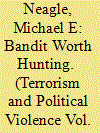

|
|
|
|
|
| Summary/Abstract |
The September 11, 2001, attacks were not the first time that a private, foreign group attacked the United States mainland. Although not referred to as an act of “terrorism” at the time, the March 1916 raid of Francisco “Pancho” Villa and his men on Columbus, New Mexico, was understood by Americans of the early-twentieth century in much the same way. The discourse of the “bandit,” as Villa was widely described at the time, connoted many of the same meanings that we ascribe to terrorists in the twenty-first century — criminality, incivility, and illegitimacy. This rhetoric served to dehumanize Villa and justified U.S. incursions on Mexican sovereignty in its fruitless pursuit of him and his militia. Moreover, Villa’s political motivations for the attack reflect a modern understanding of terrorism. He sought revenge against the Woodrow Wilson administration for withdrawing its support of him during the Mexican Revolution and tried to goad the United States and Mexico into a wider war. His brief invasion nearly succeeded in bringing about his desired result. American understandings and approaches to Villa mirror many of the same strategies that have been used in the modern war on terror.
|
|
|
|
|
|
|
|
|
|
|
|
|
|
|
|
| 18 |
ID:
081451
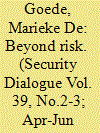

|
|
|
|
|
| Publication |
2008.
|
| Summary/Abstract |
In the context of the `war on terror', techniques of imagining the future have taken on new political significance. Richard Grusin has coined the term `premediation' to describe the way in which news media and cultural industries map and visualize a plurality of possible futures. This article examines the relation between the politics of risk and premediation as a security practice. Premediation simultaneously deploys and exceeds the language of risk. Its self-conscious deployment of imagination in security practice feeds economies of both anxiety and desire
|
|
|
|
|
|
|
|
|
|
|
|
|
|
|
|
| 19 |
ID:
072300
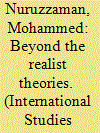

|
|
|
|
|
| Publication |
2006.
|
| Summary/Abstract |
The American war on terror and the invasion of Iraq remain spectacular developments in the history of international relations. This article probes the explanatory powers of the existing academic realist theories to account for the Bush administration's war against Al-Qaeda, a nonstate shadowy organization, and the invasion of Iraq. It argues that the realist theories are largely deficient frameworks to provide any satisfactory explanation of the war on terror and its subsequent extension to Iraq. This paper also proposes an alternative framework, the framework of "neo-conservative realism," to offer a more satisfactory explanation of America's war on terror. The framework of "neo-conservative realism," in contrast to the existing realist theories, is more flexible to account for the current neo-conservative outgrowth of American foreign policy and national security strategy.
|
|
|
|
|
|
|
|
|
|
|
|
|
|
|
|
| 20 |
ID:
193095
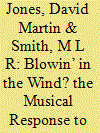

|
|
|
|
|
| Summary/Abstract |
Popular music was the most immediate way in which the cultural response to 9/11 manifested itself. Initially music offered a way of mourning and coping with grief. As the United States moved toward the invasion of Iraq, pop music also began to reflect the divisions in society between patriot-artists who supported the invasion, most notably in country music, and protest-artists who articulated critical attitudes to war. These anti-war songs did not attain the stature of those that characterized the era of protest during the Vietnam War, nor did they offer a musical accompaniment to a social movement with any enduring political significance. One little observed dissonance that a longitudinal survey of the musical response to political violence reveals, however, is that over time the attitudes of protest songwriters and the patriots transvalued. Ironically, interventionist “rednecks” became disillusioned with the endless wars of intervention, whilst the “protest” writers lost their voices after President Obama came to power. Ironically, icons of popular music instead turned their ire on those who voted for an anti-establishment President Trump who vowed not to involve the U.S. in further military adventures.
|
|
|
|
|
|
|
|
|
|
|
|
|
|
|
|
|
|
|
|
|